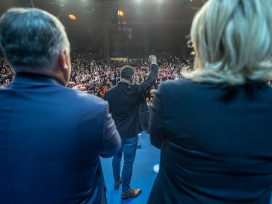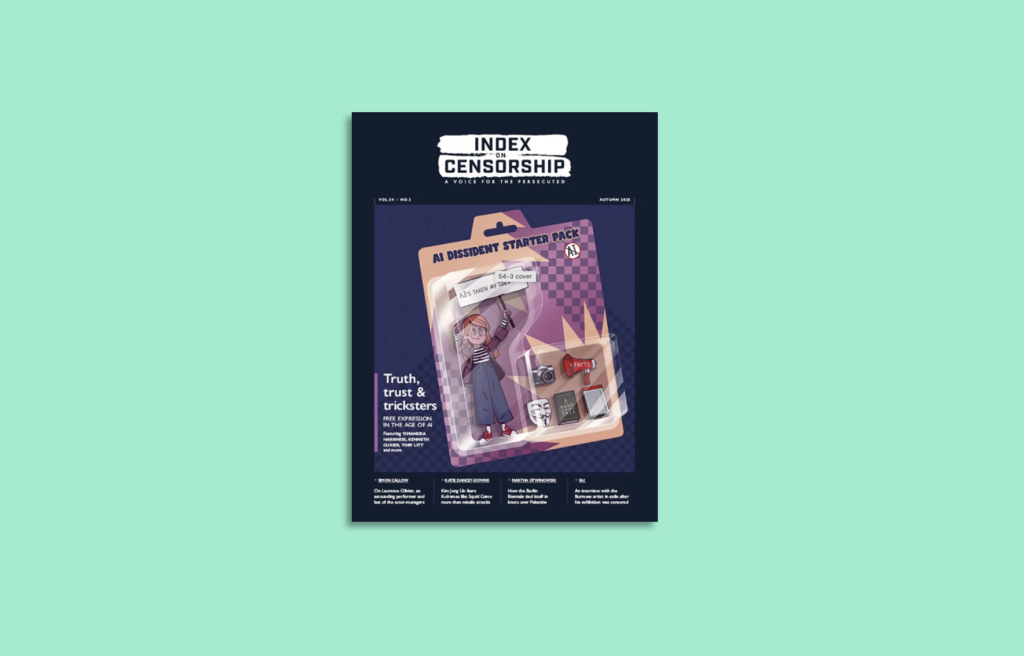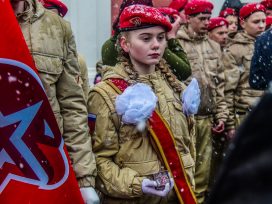
On political speech and the paradoxes of critique after Trump and Gaza; why the far right fills the gap left by restorationist liberalism; and how fascization depends on white middle-class solidarity.
How AI is changing the nature of censorship; artificial intelligence versus historical truth; revisiting the UK government’s response to 7/7; missing Palestinians from this year’s Berlin Biennale.
The autumn issue of Index on Censorship features a special report on the exploding influence of AI and the ethical and political threats it poses to free expression.
Titled ‘Truth, Trust & Tricksters: Free Expression in the Age of AI’, the issue explores various ways in which the use of artificial intelligence raises ethical concerns. ‘The repercussions are enormous. How will we ever be able to trust the truth anymore?’ writes editor Sally Gimson in her foreword.

Kenneth Cukier addresses the challenges AI technology poses – ‘existential questions for human freedom and indeed what it means to be human’. As ‘hyperscalers’ such as Meta, Alphabet, Amazon and Microsoft plough billions into AI infrastructure, and AI firms such as OpenAI, Elon Musk’s xAI and China’s DeepSeek race to develop services, the world is entering what Cukier describes as ‘an era of “AI colonialism” in which other countries need to align themselves to the “ecosystem” of AI services from either the USA or China’.
Unlike previous technological breakthroughs such as the printing press, the output of generative AI can be influenced and controlled by its gatekeepers, who have control over how algorithms operate, shaping the contours of individual thinking and freedom of expression in the digital realm. ‘The world’s largest companies are defining how individuals can exercise their freedom of thought, expression and assembly in digital settings’, writes Cukier. He cites the political bias of China’s DeepSeek, which has been programmed to ignore questions about the Tiananmen Square massacre of 1989. While the world is familiar with censorship when carried out by external bodies, ‘society is less adept at seeing it when it’s covertly or implicitly built into the technical systems people use’.
Meanwhile, the increasing reliance of states, businesses, and individuals upon a few dominant AI companies for services is threatening competition, resulting in a ‘vast degree of asymmetry of power’ unprecedented in the modern era. Meanwhile, the danger is that an increased reliance on automated answers will reduce competition of ideas, impoverishing innovation and creativity.
Looking ahead, Cukier cautions that technology currently being developed by the likes of Musk’s Neurolink could lead to censorship ultimately being embedded in the human mind through AI enhancements and implants – a frightening prospect.
Artificial intelligence has a number of practical applications in historical research, writes Salil Tripathi: it can digitize archives and analyse vast amounts of data quickly, identifying patterns. However, he cautions, it oversimplifies complex events, overemphasizes dominant or frequently cited narratives, is incapable of identifying biased sources, and is unable to separate truth from lies. It ‘cannot evaluate credibility, weigh accounts or identify gaps in records’ – and it ‘presents information with unearned authority, spreading errors rapidly’.
Tripathi cites an experiment by Indian historian Anirudh Kanisetti, who asked Microsoft’s AI tool Copilot, which runs on ChatGPT, to write an essay based on his academic work. When challenged on the accuracy of its summary, the bot admitted having fabricated a paper by another historian cited in the footnotes.
While hoaxes and forgeries are nothing new to the discipline, AI’s scope for the mass forging of documents, as well as the creation of deepfake videos and AI-generated visual imagery, means that historians will need to learn to recognize forgeries as part of their professional training in future.
But equally concerning are the opportunities AI presents to those seeking to subvert the historical record by erasing inconvenient truths or reinforcing ‘official’ versions of history, from authoritarian governments to Holocaust deniers. Tripathi cautions against the belief that ‘answers to complex questions are just one click away’.
Editor-at-large Martin Bright examines how extremist politics challenge the limits of free expression in Britain. He tracks the evolution of the UK government’s dialogue with the country’s Muslim community in the 20 years since the 7 July 2005 terror attacks in London, focusing in particular on Whitehall’s relationship with the Muslim Council of Britain (MCB), Britain’s largest Islamic representative body.
As Bright explains, the government decided in the wake of the attacks that ‘the best way to keep young Muslims from the path of violence was to keep the MCB close and listen to their advice about what was happening on the ground’.
However, the UK government’s desire to be seen to be engaging with the Muslim community caused it to turn a blind eye to inconsistencies in statements made by the leadership of the MCB, as well as its ties to South Asian Islamic fundamentalism. This was despite public criticism from the likes of Salman Rushdie and even Bright himself.
While firm in its condemnation of the terror attacks in London, the MCB displayed an ‘ambivalent stance on suicide bombers and the Palestinian terror organization Hamas’, accusing critics of being mouthpieces for the ‘Israel lobby’.
Why is this debate still relevant today, so many years later? ‘Because the politics of extremism test the limits of democracy and the principles of free expression that underpin it’, writes Bright. The UK government’s controversial handling of recent pro-Palestinian demonstrations show the UK still has a problem distinguishing between the right to free expression and support for terrorism.
Martha Otwinowski highlights the tightrope German cultural institutions are treading in relation to Israel-Palestine since 7 October 2024. Exhibitions have been cancelled or postponed and professorships withdrawn as organisations agonize over the correct course of action, for fear of being accused of antisemitism.
Wishing to avoid a scandal like that caused by perceived antisemitic artworks at the 2022 documenta, the curators of this year’s Berlin Biennale took a guarded approach towards expressions of pro-Palestinian solidarity. While many of the works on display were oriented around subversive acts in the face of oppression, writes Otwinowski, the pervading sense among curators and academics both inside and outside Germany ‘was that what is currently permissible in Germany’s cultural sector simply isn’t enough’.
Published 5 November 2025
Original in English
First published by Eurozine
© Eurozine
PDF/PRINTSubscribe to know what’s worth thinking about.

On political speech and the paradoxes of critique after Trump and Gaza; why the far right fills the gap left by restorationist liberalism; and how fascization depends on white middle-class solidarity.

Education has become another battleground in the Kremlin’s campaign to militarize the Russian public consciousness. Youth organizations, book bans, changes to school curricula – all amount to a ‘special anthropological operation’.